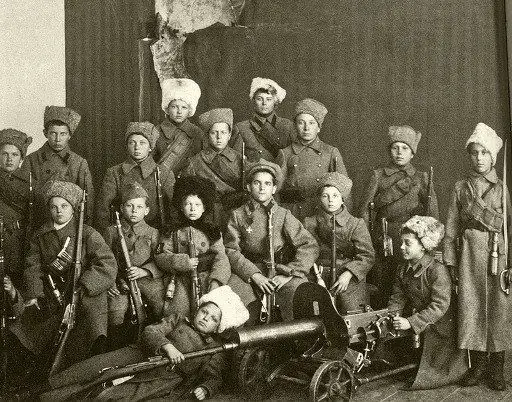- Author Antonio Harrison [email protected].
- Public 2023-12-16 07:44.
- Last modified 2025-01-22 21:44.
The civil war that raged across most of Russia from 1918 to 1920. (and in the Far East - until the end of 1922), one of the most tragic pages in the history of our Motherland. During this bloody conflict, millions of people died and huge material damage was caused. The confrontation destroyed many families, the son went against the father, and the brother against the brother. There was a general bitterness, reaching extremes. Why did such a tragedy happen?

Instructions
Step 1
Like any historical event, the Civil War in Russia was caused by many reasons - both objective and subjective. A huge role was played by the First World War, in which Russia, as a member of the Entente ("Hearty Concord", a military-political alliance with Great Britain and France), fought against the German, Austro-Hungarian and Ottoman empires. The heavy defeats suffered by the Russian Empire in 1915 forced the Russian army to retreat, giving up large territories to the enemy. Even the successful Russian offensive in 1916 (the so-called Brusilov Breakthrough) could not fully correct the failures of last year's campaign.
Step 2
The protracted war, many casualties, the occupation of large territories by the enemy - all this caused sharp discontent in various strata of society. The situation was aggravated by the embezzlement of the state, as well as the weakness of Emperor Nicholas II, who was unable to establish elementary order in the country. The prestige of the ruling dynasty slipped to a minimum. Therefore, when in February 1917 riots broke out in Petrograd due to lack of food, they quickly escalated into a revolution. Nicholas II abdicated the throne. Power passed to the interim government, until the convocation of the Constituent Assembly.
Step 3
However, the interim government very soon revealed its complete inability to keep the situation under control. Mass desertions from the army began, agrarian riots, separatist tendencies began. The country was on the verge of collapse. On October 25, 1917 (old style), a military coup took place in Petrograd, organized by the Bolshevik Party under the leadership of Ulyanov-Lenin and Trotsky. A course was taken to build a fundamentally new state, which was to serve as a fuse for the world communist revolution. The Constituent Assembly was dispersed in January 1918, and in March the Treaty of Brest-Litovsk was signed with Germany on humiliating terms. Russia was deprived of vast territories and undertook to pay Germany a large indemnity.
Step 4
For some residents of Russia, these events were a terrible blow. They did not accept either the dispersal of the Constituent Assembly, much less the predatory conditions of the Brest-Litovsk Peace. From their point of view, the Bolsheviks were usurpers and traitors. The country actually split into two camps, which soon led to the same Civil War.






